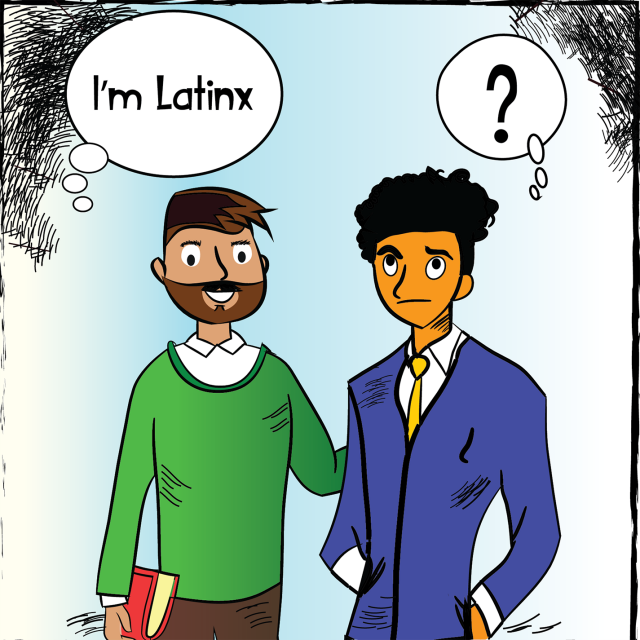| September, 18, 2019 | Juan Ibarra | editor-in-chief |
|---|

It’s the time of year to celebrate Hispanic Heritage Month, and so it is time to see the term “Latinx” pop up again, even if it does more harm than good.
The term “Latinx” refers to a person of Latin American origin or descent and is meant to be used in situations where gender-neutral is better, such as when referring to a group or population.
The idea is to be inclusive and welcoming to more people while advocating for gender equality.
However, while trying to put everyone on the same playing field, this term only does the opposite by taking the Spanish language and taking away what makes it unique. The Spanish language utilizes genders, and it is one of the core principles within the language.
The use of “Latino” as the general name for a group of mixed genders is not made to ostracize the female population and is only used to follow traditional language customs.
“Latinx” sounds like someone who is not of Latin American descent took the term “Latino” and decided that they would change the word to appeal to the new “woke” culture. While it is a good idea to be aware of people from different backgrounds, this time it does no favors to anyone but those who think they are being forward-thinking. In reality, they are disrespecting thousands of years of culture and history in one fell swoop.
Journalist and author Ed Morales has said that “Latinx” is a “new badge of honor” and that it helps young people “identify across different marginalized communities.” He cited Parkland survivor Emma Gonzales as an example and mentioned that she identifies as Cuban-American, bisexual and a gun reform activist.
Using “Latinx” as a way to identify someone who is not just Latino, but also a part of other marginalized groups is a slap in the face to Latinos all over the world.
“Latinx” is not a Spanish word.
It is a word that has been made by someone of another culture and is being used to describe Latinos. Why is this form of verbal colonization OK?
It’s not OK to take someone’s culture and bundle it together with another group under the guise of “being more inclusive to all groups.”
Not only is it insulting to Latinos, but it is also unfair to other marginalized groups looking to fight for their rights.
If groups such as transgender, gay and nonbinary are being roped into the term “Latinx,” they lose value. It undermines the entire point of supporting marginalized groups by hiding those groups and putting them into one unrelated term.
The fight for equality within all marginalized groups begins with supporting each other, but not becoming one group. If one group is created, there is too much risk of losing what makes every group unique.
In an effort to help everyone, the term “Latinx” does the exact opposite. It’s a shame that there is a population pushing the use of this word and trying to make it the norm.
Realistically, people who have Latin American roots would prefer to be distinguished by their home country and would merely say Mexican, Puerto Rican, Colombian, etc.
Respecting the customs and traditions of a nationality are more important than shoehorning modern sensibilities where they don’t belong.































